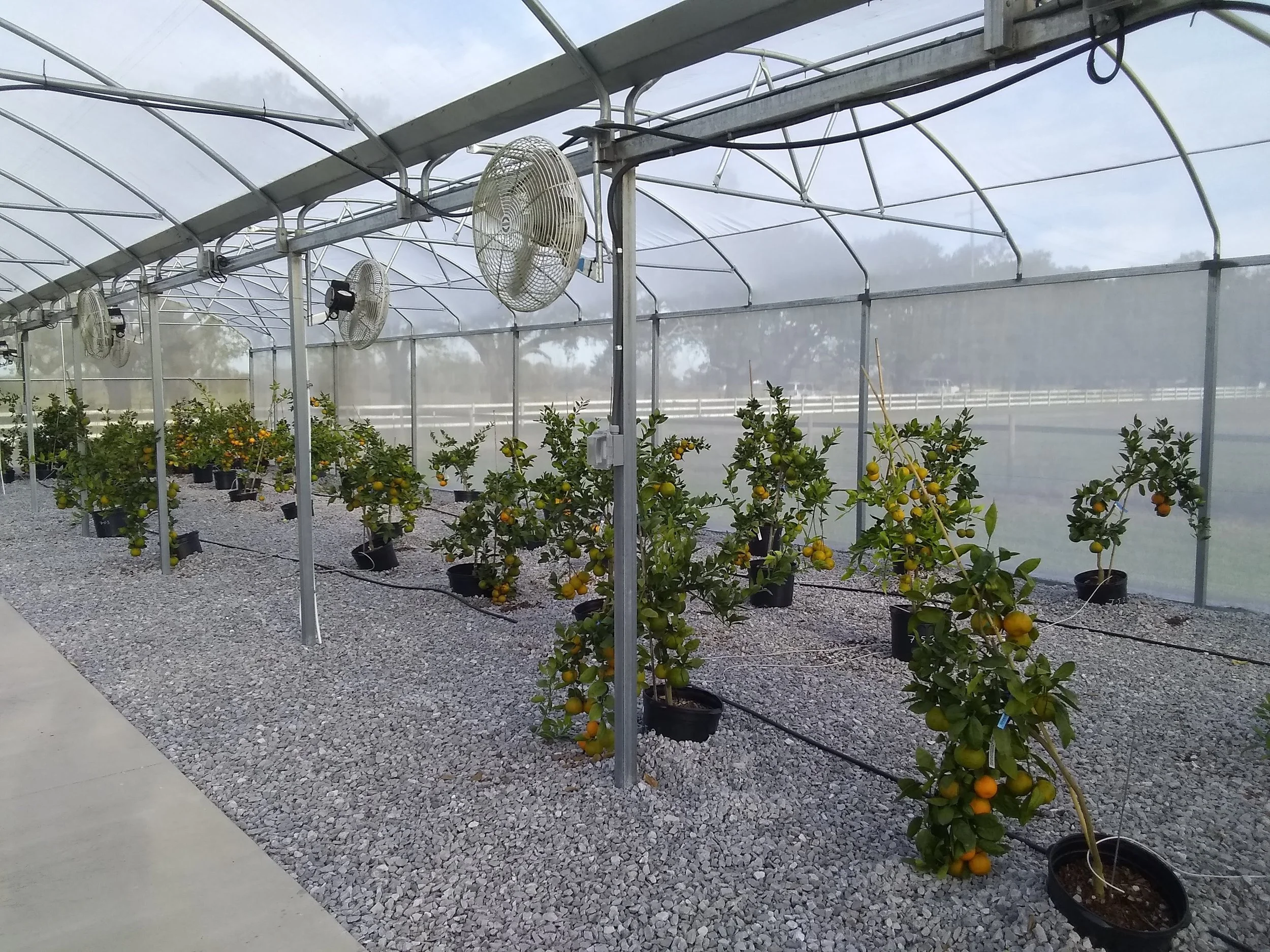Meraux Foundation, LSU AgCenter Partnership Bears Fruit
Over one thousand pounds of satsumas grown by the LSU AgCenter at the Center for Louisiana Citrus Innovation and Research at Docville Farm are being donated to local food banks.
The fruit was grown as part of an agricultural demonstration project that is looking at best practices for growing citrus trees in containers and within screened enclosures to protect them from pests and freezing temperatures and to allow more trees to be grown per acre.
This is an especially important study for Louisiana growers, because of the prominence of destructive diseases that are difficult to treat, most notably citrus greening, which is spread by an insect. They’ve been responsible for devastating citrus groves across the south, prompting federal quarantines. The demonstration project at Docville Farm is meant to show farmers a better way of production, one that requires less land, is easier to start up and scale, is less susceptible to disease and insect pressure, and produces great tasting fruit.
The Meraux Foundation constructed the screened citrus facility at Docville Farm, its home base that is dedicated to educational and cultural purposes. It also established a $320,000 endowment to create four professorships to support citrus and commercial horticulture research that will take place there. The family foundation also helps fund the salary of the local LSU AgCenter agent, Anna Timmerman, who is heading up the citrus project.
“We weren’t expecting this much yield from our first harvest with such young trees, but we were really happy to see so much good tasting, commercial grade fruit already,” said Timmerman.
The half a ton of produce is being donated to area food banks and other nonprofits, with large supplies going to the Community Center of St. Bernard, the local food pantry, Common Ground Relief in the Lower 9th Ward, the Community Fridge Network, and the Orleans Parish Council on Aging annual Senior Thanksgiving Luncheon. Additional fruit is destined for the youth 4-H Cookery Contest, where students will compete in “The Great Satsuma Peel Challenge”, which teaches nutrition literacy and about local agriculture.
Part of what Timmerman is researching through the program is how close the trees can be planted together without affecting production. This makes harvesting the thousand pounds of fruit a tedious process, because each satsuma must be measured and graded. And as quickly as it can be harvested, she’s giving it away.
Timmerman says the demonstration project is showing early signs of success, “the satsumas taste really good, in terms of sugar content they're at 10-12 brix, which is exactly what you’re shooting for commercially, a great blend of acidity and sweetness.”
“The whole point here is to help local farmers, and I’m envisioning a future where we see these screened enclosures throughout the region,” she said. “It’s an added benefit that we’re also able to provide fresh, nutritious fruit to local food pantries and nonprofits to distribute.”
"We are so happy to host this demonstration project at Docville, and we’re grateful for the LSU AcCenter’s partnership,” said Rita Gue, the president of the Meraux Foundation. “This is yet another area where St. Bernard is serving as a model for best practices. We hope that the work taking place here will unlock new opportunities for Louisiana farmers and help create a more resilient economy.”
Home growers should be on the lookout for citrus diseases too, and Timmerman suggests they look at the LSU citrus home production guide that shows how to identify and manage pests and diseases, as well as how to prune, fertilize and more. Anyone in need of help with diagnosing their citrus trees is welcome to reach out to her at atimmerman@agcenter.lsu.edu.


